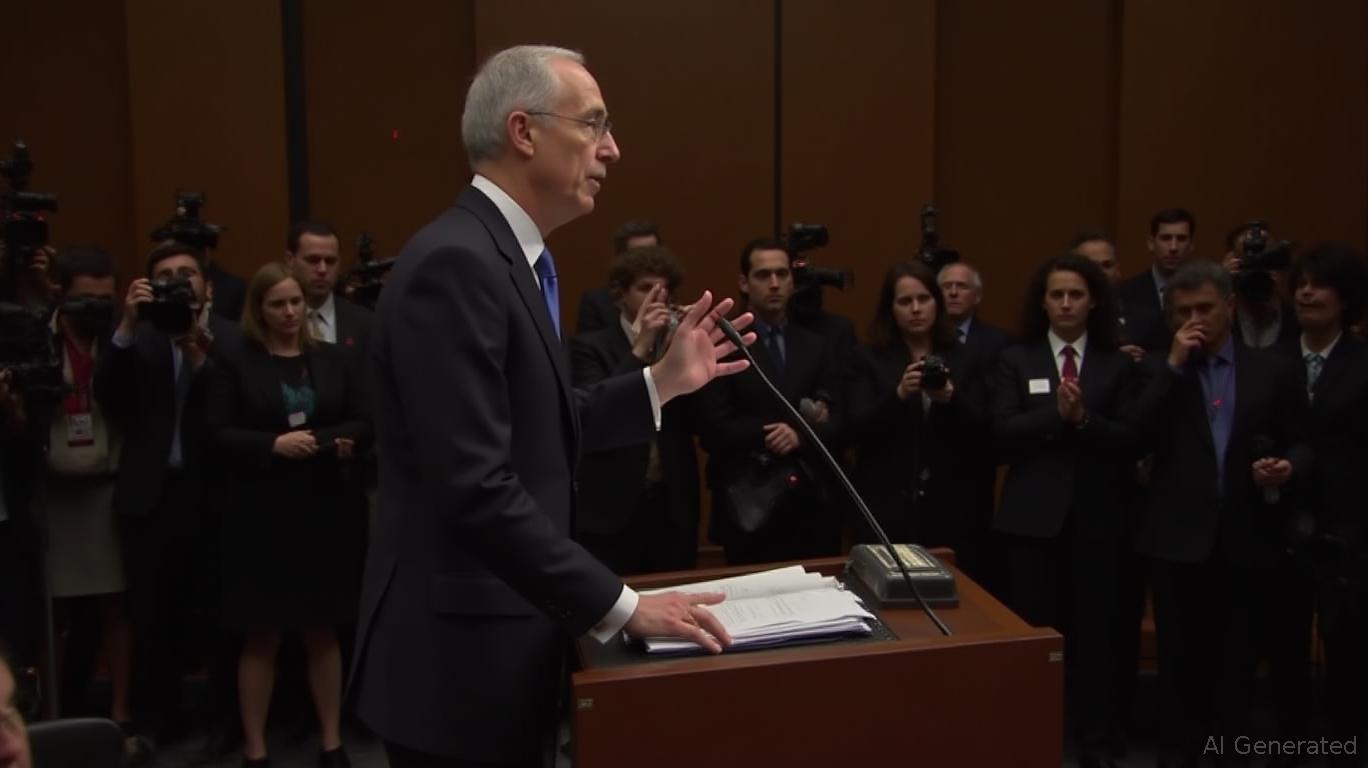Tech Backers Support AI "Immune System" to Counter Bioterrorism Threats
- Valthos, a biosecurity startup, secures $30M from OpenAI, Founders Fund, and Lux Capital to develop AI tools for real-time detection of engineered biological threats. - The investment aims to combat AI-fueled bioterrorism by integrating AI with biological data to create early-warning systems and rapid countermeasures. - OpenAI's involvement reflects a broader industry shift toward multi-layered biosecurity, emphasizing proactive defense against dual-use AI risks. - Valthos plans global partnerships to bu
Valthos, a biosecurity company based in New York, has exited stealth mode with $30 million in investment from OpenAI, Founders Fund, and Lux Capital to create AI-powered solutions for identifying and neutralizing engineered biological threats in real time, as reported by
The company’s purpose is driven by the pressing challenge of AI’s dual-use potential, which can both propel biotech progress and empower bad actors to create hybrid pathogens. Valthos is developing a platform that analyzes global biological information—from genome data to wastewater surveillance—to spot early indicators of engineered dangers and quickly devise countermeasures, according to TechStartups. Founders Kathleen McMahon and Tess van Stekelenburg, who bring experience from Palantir, DeepMind, and the Broad Institute, stress the need for proactive protection. “The key to stopping an attack is detecting it in real time, updating defenses, and deploying them rapidly,” McMahon explained.

OpenAI’s involvement in this funding round signals a new direction for the organization, which has previously faced criticism regarding the potential abuse of its technology. By supporting Valthos, OpenAI is responding to calls for layered biosecurity strategies, such as stricter DNA synthesis controls and stronger collaboration between technology companies and public health organizations, as noted by Startup Wired. Founders Fund and Lux Capital, both known for investing in groundbreaking ventures like SpaceX and Palantir, view this as both a protective measure and a safeguard against the existential threats posed by rapidly advancing AI.
Valthos’s strategy fuses AI with biological know-how to establish a “biosecurity shield” for the modern era. Its system brings together information from both governmental and private sources, leveraging machine learning to model how pathogens might evolve and to design vaccines, diagnostics, and antibodies before crises escalate, Startup Wired reported. The company intends to broaden its collaborations with governments and research bodies to enhance its early-warning capabilities and speed up emergency responses, TechStartups added.
The importance of this initiative is highlighted by recent alerts from the Center for AI Safety, which pointed out that AI-enabled bioweapons are now a real possibility. With AI’s assistance, a terrorist with access to basic laboratory tools could create a pathogen as infectious as measles, as lethal as smallpox, and as elusive as HIV, TechStartups noted. Valthos’s founders maintain that AI should be used to defend against such threats, not just to drive innovation. Their long-term goal is to build a worldwide network where cities and laboratories share anonymized biological data, creating an AI-driven “immune system” for humanity, Startup Wired reported.
Although Valthos has set ambitious objectives, it must overcome obstacles such as integrating sensitive data across various industries and dealing with regulatory hurdles. Nevertheless, its leadership believes that combining human insight with AI is the most effective way to foster trust and accuracy in biosecurity, according to Startup Wired.
This investment signals a broader transformation within the tech sector, as more companies acknowledge their responsibility in tackling global threats. By backing initiatives like Valthos, OpenAI and its partners are demonstrating their dedication to ensuring that AI’s positive impacts surpass its risks. As the boundaries between digital and biological security become less distinct, startups that bridge these fields may shape the next wave of innovation and safety, TechStartups concluded.
Disclaimer: The content of this article solely reflects the author's opinion and does not represent the platform in any capacity. This article is not intended to serve as a reference for making investment decisions.
You may also like
Ethereum News Today: As ETH Remains Static, MUTM’s DeFi Approach Draws in $17.8M and 17,000 Investors
- Mutuum Finance (MUTM) raised $17.75M in Phase 6 presale at $0.035, attracting 17,370+ holders. - Analysts project $0.21 price target by mid-2026 driven by dual-lending model and Q4 2025 testnet launch. - Project features 24-hour leaderboards, $50K bug bounties, and CertiK audit (90/100) to build trust. - MUTM's structured ROI (420% potential) and utility-driven growth outpace Cardano/ETH's speculative models.

U.S.-Supported Thailand-Cambodia Accord: A Strategic Geopolitical Maneuver for Stability in Southeast Asia
- Thailand and Cambodia near historic peace deal, backed by U.S., to end border clashes with weapon withdrawals and joint de-mining. - U.S. involvement highlights regional influence amid China’s growing presence, with Trump set to witness the October 25 signing. - Thailand unveils $150M tourism stimulus to boost domestic travel, balancing fiscal prudence with growth targets. - China-U.S. trade talks in Malaysia aim to ease tensions over tariffs, with both sides addressing trade barriers and rare-earth expo

BAT rises 1.26% as short-term profits counteract overall declines
- BAT surged 1.26% in 24 hours to $0.1683, contrasting a 27.66% annual decline despite 20.54% monthly gains. - Short-term momentum reflects improved risk appetite and easing crypto bearishness, though long-term fundamentals remain weak. - A proposed EMA crossover strategy aims to validate trends using 50/200-day indicators amid volatile price action. - Backtesting over 12 months with $10k investment seeks to manage risk through -10% stop-loss and +20% take-profit thresholds.
U.S. and China Hold Trade Negotiations in Kuala Lumpur to Prevent Escalation and Extend Ceasefire
- U.S.-China high-level trade talks resumed in Kuala Lumpur, 2025, aiming to avert a trade war ahead of potential Trump-Xi APEC summit discussions. - Negotiations focused on agricultural trade (U.S. soybean imports to China dropped to zero in September 2025), rare earth export controls, and semiconductor tariffs. - Malaysia's neutral role highlighted its diplomatic influence, with U.S. officials acknowledging its strategic value in stabilizing trade ties amid unresolved issues like Hong Kong's Jimmy Lai de
